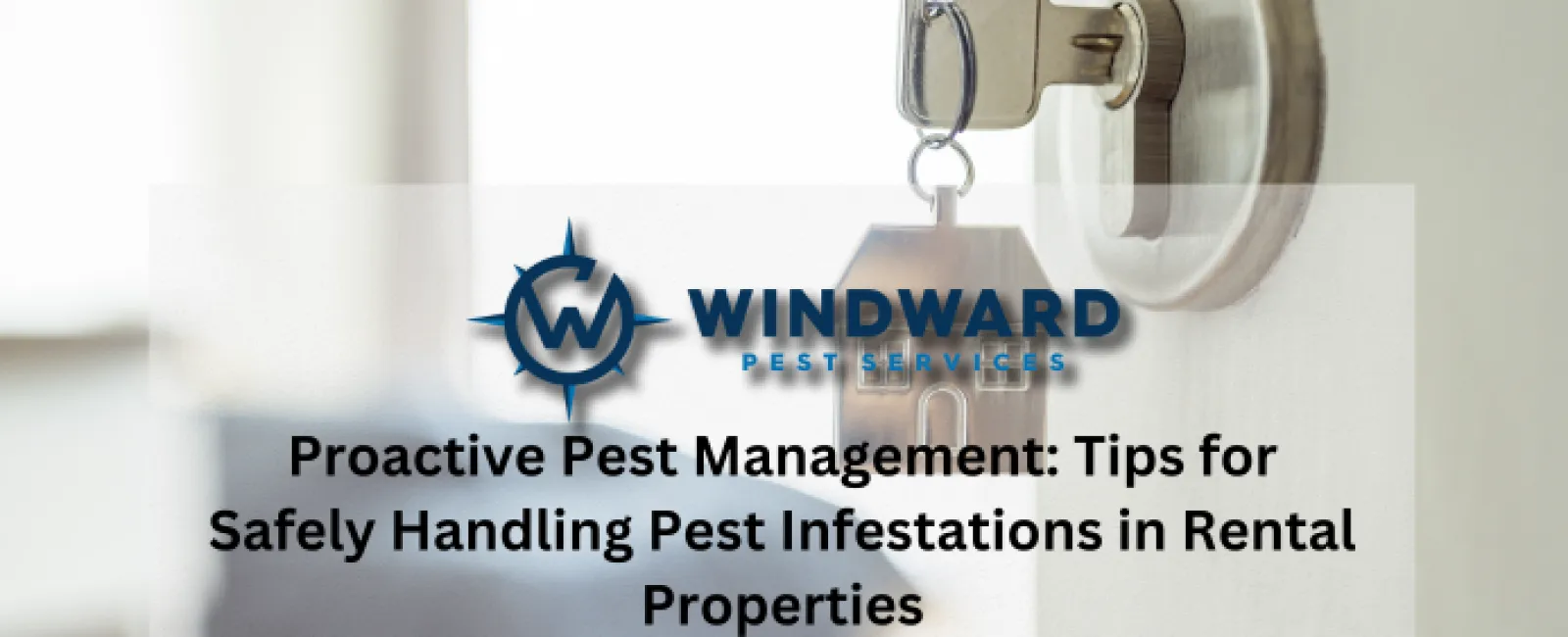Living in a rental property is an experience filled with both advantages and challenges. The flexibility to move when needed and the convenience of having certain responsibilities handled by the landlord are undoubtedly appealing aspects. However, one of the most daunting challenges renters often encounter is the unwelcome presence of pests. Whether it's the scuttling of cockroaches in the kitchen, the faint scratching of mice within the walls, or the dreaded discovery of bedbugs lurking in the bedroom, pests have a knack for disrupting the peace and comfort of any home.
Yet, amidst this unsettling reality, there remains hope. There are proactive steps tenants can take to tackle pest infestations head-on, safeguarding their living spaces and restoring tranquility to their homes. In the following sections, we'll delve into a comprehensive guide, providing practical advice and valuable insights for tenants navigating the complexities of pest management in rental properties. And our journey doesn't stop there. Beyond mere pest eradication, we'll also explore the interconnectedness between sustainable living practices and effective pest management. By adopting eco-friendly approaches and embracing sustainable habits, tenants can not only mitigate pest infestations but also contribute to a healthier, more harmonious environment for themselves and future generations.
Additionally, we'll underscore the significance of professional services such as pest control and interior treatments. While DIY solutions have their merits, there are instances where the expertise and resources of trained professionals are indispensable. By recognizing the pivotal role of these services, tenants can access specialized assistance tailored to their unique pest control needs, ensuring a thorough and lasting solution to their infestation woes.
So, let's embark on this journey together, armed with knowledge, determination, and a commitment to fostering pest-free, sustainable living environments in rental properties.
Know Your Enemy: Understanding Common Pests
- Before embarking on your journey to combat pests, it's crucial to familiarize yourself with the adversaries you may encounter. Common pests vary depending on your geographical location and the type of rental property you inhabit. Ants, rodents, cockroaches, and bedbugs are among the most prevalent nuisances that tenants face. Understanding their behavior, preferred habitats, and typical entry points into your home is paramount in developing an effective strategy for pest management.
Maintain Cleanliness and Hygiene
- Pests are opportunistic creatures, drawn to environments rich in food, water, and shelter. To deter them from infiltrating your rental property, prioritize cleanliness and hygiene. Establish a routine of regular cleaning, focusing on areas prone to spills and crumbs, such as countertops, floors, and kitchen appliances. Store food in airtight containers to eliminate potential food sources for pests. Additionally, promptly address any leaks or moisture issues to deprive pests of water, and declutter your living space to eliminate hiding spots.
Seal Entry Points
- Prevention is key when it comes to pest control, and sealing entry points is a fundamental aspect of this strategy. Conduct a thorough inspection of your rental property to identify cracks, gaps, and openings in walls, floors, and windows that may serve as entry points for pests. Pay close attention to areas where utility pipes and cables penetrate the building, as these are common avenues for pests to gain access. Utilize caulking, weather stripping, or wire mesh to seal these entry points effectively, denying pests entry into your living space.
Practice Sustainable Living
- Incorporating sustainable living practices into your pest management efforts not only benefits the environment but also promotes long-term solutions to pest problems. Opt for eco-friendly pest control products and methods whenever possible, such as natural repellents, traps, and baits derived from non-toxic materials. Consider implementing integrated pest management (IPM) techniques, which emphasize preventive measures and the use of cultural, mechanical, and biological control methods to manage pest populations effectively.
Regular Inspections and Monitoring
- Vigilance is key to staying one step ahead of pests. Schedule regular inspections of your rental property to detect signs of pest activity early on. Keep an eye out for droppings, gnaw marks, chewed wires, or other telltale signs of pests' presence. Additionally, deploy monitoring devices such as sticky traps or pheromone traps in areas prone to infestations to track pest activity and gauge the effectiveness of your pest control efforts.
Seek Professional Assistance
- While DIY pest control methods can be effective for minor infestations, severe or recurring pest problems often necessitate professional intervention. Consider enlisting the services of reputable Atlanta pest control professionals who specialize in safe and effective pest management for rental properties. Professional exterminators possess the expertise, experience, and resources to identify, treat, and prevent pest infestations safely and efficiently, providing you with peace of mind and a pest-free living environment.
Communicate with Your Landlord
- Maintaining open communication with your landlord or property manager is essential when addressing pest issues in your rental property. Report any signs of pest infestations promptly and document the details of your communication for reference. Your landlord has a legal obligation to provide a habitable living environment, which includes addressing pest infestations in a timely and effective manner. By collaborating with your landlord, you can work together to implement proactive pest control measures and ensure the long-term health and safety of your rental property.
Follow Proper Disposal and Waste Management Practices
- Proper disposal and waste management practices play a crucial role in minimizing food sources for pests and preventing infestations. Use sealed trash cans with tight-fitting lids to contain food waste and prevent pests from accessing it. Avoid leaving trash bags or bins outside for extended periods, as this can attract unwanted visitors. If you compost organic waste, use designated containers or compost piles located away from your rental property to deter pests from congregating near your home. By following these practices, you can effectively manage waste while reducing the risk of pest infestations in your rental property.
Dealing with pest infestations in rental properties can be challenging, but with the right approach and proactive measures, tenants can effectively address and prevent pest problems while promoting sustainable living practices. By understanding common pests, maintaining cleanliness and hygiene, sealing entry points, practicing sustainable living, conducting regular inspections, seeking professional assistance when needed, communicating with landlords, and following proper disposal and waste management practices, tenants can create a pest-free and comfortable living environment in their rental properties. Also, with the support of professional pest control services in Atlanta and interior treatments, tenants can enjoy peace of mind knowing that their homes are safe, healthy, and free from pests.

